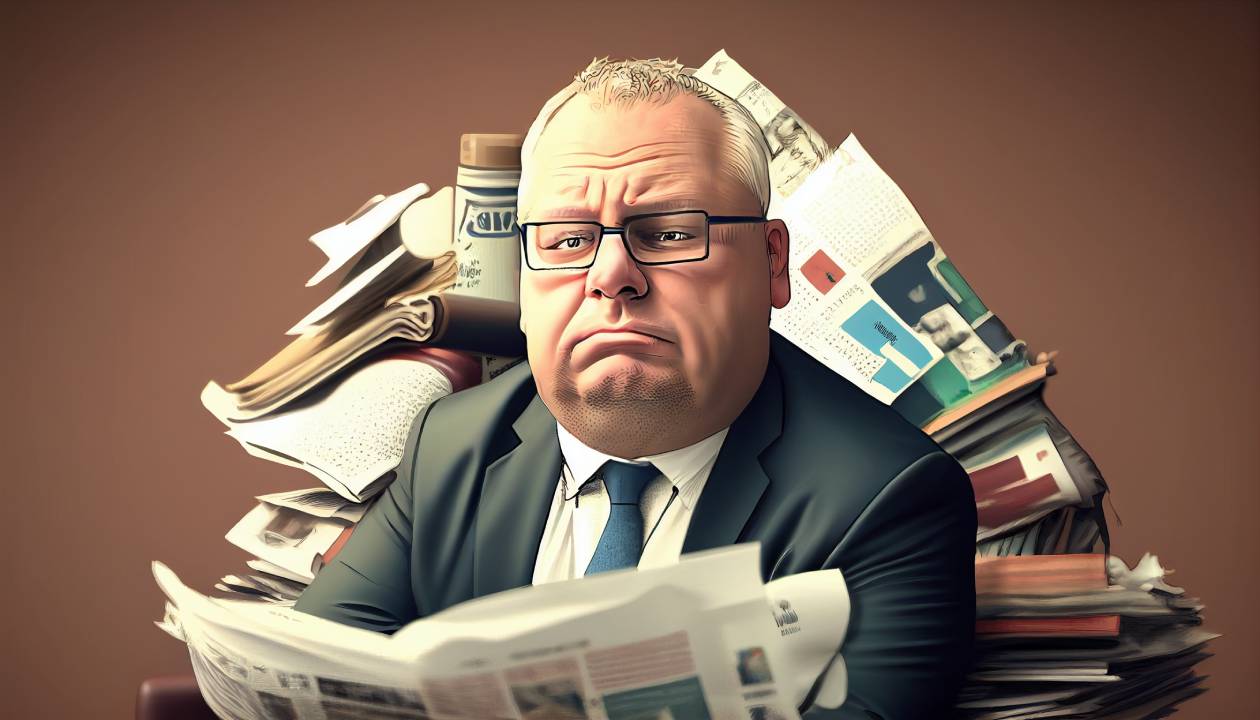
We don't want to introduce censorship, says a government official
A final document has not yet been drawn up. Opposition politicians fear censorship.
The first version of the government's plan was leaked to the Czech media in December 2022. According to this document (dated November 2022), spreading disinformation could be prosecuted and the government will give money to non-profit organisations that help improve media literacy. Government agencies should stop advertising on fake news websites.
There is currently no national strategy for dealing with foreign influence and anonymous - mostly pro-Kremlin - websites that spread hoaxes. In the spring of last year, the Czech government appointed a commissioner for the media, who is responsible for an overall analysis of the situation and proposals for the way forward.
This so-called action plan follows the "Analysis of the readiness of the Czech Republic to face a serious wave of disinformation", a strategic document prepared by the Ministry of the Interior in July 2022. This analysis states that "the Czech Republic does not currently have the conceptual, organisational, procedural, personal, legal or other capacities that would be effective in responding to a possible attack against the Czech Republic conducted with the help of a deliberately or spontaneously created serious wave of disinformation".
The leaked proposal of action plan was published online by iRozhlas, the news website of Czech Radio. The media committee of the Czech Chamber of Deputies then asked government commissioner Michal Klíma to describe and explain what changes and further steps were being proposed.
"We are simply continuing the work of the previous governments," Mr Klíma pointed out. In 2016, the government of then Prime Minister Bohuslav Sobotka approved the National Security Audit. This audit described the weak defence of Czech society against hybrid war mechanisms. Further documents were prepared for the government of Andrej Babiš (2017-2021).
Mr Klíma dismissed fears of censorship. "I helped spread the independent press during the communist era, risking my personal freedom. No one should expect me to prepare a regulation on freedom of expression," he said.
The action plan is simply a summary of necessary steps, a to-do list for various government bodies. The main points are:
- Create a position for a government official responsible for monitoring the disinformation scene,
- Support civil society and media literacy programmes (e.g. organisations that teach senior citizens how to search for information online),
- Support independent media in a similar way to Western Europe (basically with grants, perhaps lowering VAT),
- Demonetize the disinformation scene by banning state advertising on websites that don't have a transparent owner, editorial staff or don't meet basic professional journalistic standards,
- Cooperate with other EU countries on the issue of social media regulation,
- Make legislative changes - possibility to ask the court to shut down websites that pose a threat to national security or try to undermine democratic society,
- New paragraph in the Criminal Code - the crime of deliberate and long-term dissemination of disinformation with the aim of undermining the democratic establishment.
"We don't prepare anything like a list of banned websites, I can vouch for that. There is no restriction on freedom of speech. People can still say whatever they want," added Lukáš Kolářík, deputy minister of the interior. "Technically, it would be a question of limiting the reach, not of banning something from being published."
Shutting down websites should be an exceptional, temporary and rare measure, and only in the event of an emergency.
The action plan should be finalised soon and discussed later by the government. The next steps will follow in the second and third quarters of this year.

